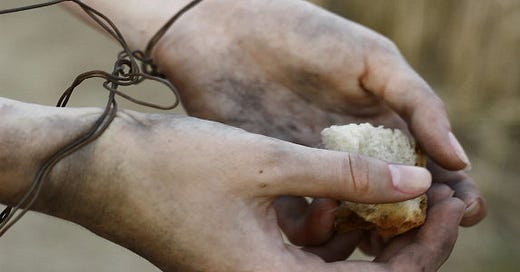What Do We Owe the Poor and Vulnerable?
Preparing for the Ninth Sunday after Pentecost: Two Days before Sunday (Year C)
Scripture (semicontinuous)
Psalter: Psalm 50:1-8, 22-23
Old Testament: Isaiah 9:18—10:4
Epistle: Acts 7:1-8
Scripture (complementary)
Psalter: Psalm 33:12-22
Old Testament: Ecclesiastes 6:1-6
Epistle: Acts 7:1-8
___
Prayer
Life-giving God, heal our lives, that we may acknowledge your wonderful deeds and offer you thanks from generation to generation through Jesus…
Keep reading with a 7-day free trial
Subscribe to Faith Seeking Understanding to keep reading this post and get 7 days of free access to the full post archives.




